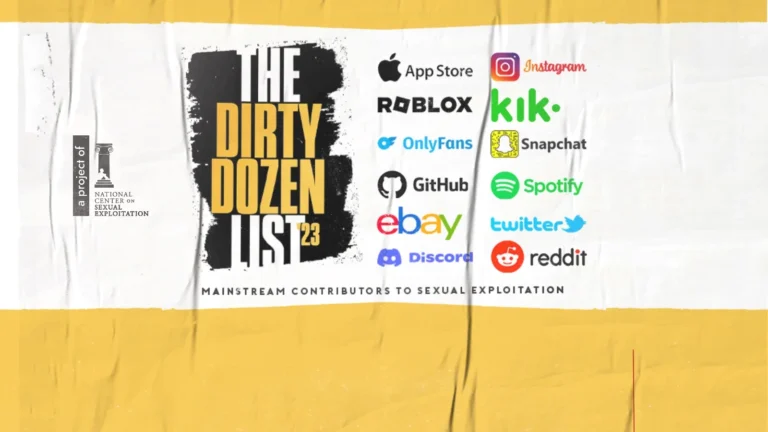NEWS RELEASE from MORALITY IN MEDIA, Inc.
NEW YORK (2/7/11) – Yesterday marked the 100th anniversary of President Ronald Reagan’s birth. He is warmly remembered for many things by most conservatives and some liberals, but there is one accomplishment that the former President is not being remembered for—namely, his strong and successful stand aginst U.S.-based hardcore ‘adult pornographers.’
MIM president Robert Peters had these comments.
Talk is cheap, but when it came to the proliferation of hardcore adult pornography in the 1970s and 1980s, President Ronald Reagan didn’t just talk the talk; he also walked the walk.
On March 28, 2003, Rev. Morton A. Hill, S.J., president of Morality in Media, and a group of other national leaders, met with President Reagan at the White House to urge the President “to order aggressive enforcement of federal obscenity laws, and appoint a coordinator to pull together the effort.” [Morality in Media Newsletter, 2, Mar/Apr 1983] The heads of the four law enforcement agencies involved in obscenity law enforcement were also present at the meeting.
As quoted in the above mentioned MIM Newsletter (p.2), the President said in part:
“[T]his vicious sexual industry is polluting the minds and spirits of America’s children…We can’t make America great again without remembering that America was great because America was good; and when we cease being good, we cease to be great…We are a Judeo-Christian nation, bound by deeply held beliefs and values…We abandon them at our own peril…”
“We need to establish specific, identifiable goals to combat pornography. We have identified the worst hazardous waste-sites in America. We have to do the same with the worst sources of pornography…We must get the most from the laws on the books.”
The MIM Newsletter (p.2) also reported that President Reagan had “asked the Postal Service and Customs Service to ‘intensify’ their efforts.” Referring to those U.S. Attorneys who were not enforcing obscenity laws, the President said, “‘[S]some of them don’t seem to have taken it seriously. We’ll see that they get a reminder that they are supposed to take it more seriously.’”
This 1983 meeting was instrumental in the formation in 1985 of the Attorney General’s Commission on Pornography, which led to the formation of a National Obscenity Enforcement Unit in the Justice Department in 1987. The Unit (now called the Child Exploitation and Obscenity Section) initiated many successful obscenity prosecutions against major commercial interstate distributors of hardcore adult pornography (primarily videos and magazines) from 1987-1993.
President Reagan also introduced the Child Pornography and Obscenity Enforcement Act of 1987. In his transmittal message, the President stated that the purposes of the bill were twofold: first, to update Federal law to take into account new technologies and ways of doing business; and second, to remove loopholes and weaknesses in the laws “which have given criminals in this area the upper hand for far too long.” [Obscenity Law Bulletin, 1, Morality in Media, Oct. 1987]
On November 1988, President Reagan signed into law the “Child Protection and Obscenity Enforcement Act of 1988,” which among other things strengthened existing obscenity laws, added new obscenity laws aimed at “adult businesses,” cable/satellite pay pornography channels and dial-a-porn, and provided for criminal forfeiture of property in obscenity cases.
As for results, an article in the NY Post (“The Way of All Flesh,” 5/9/88) reported:
“The lights are dimming on the porn industry, and it’s not to create a romantic mood either. Adult videos are under fire from every direction, and their future may be as thin as their plot lines…[A]lthough obscenity laws have been on the books for some time, they are coming out of mothballs…’The situation as I see it is improving greatly,’ says Paul J. McGeady, general counsel for Morality in Media…’We’re getting a wave of enforcement across the country’…Rick Karpel, regional director of the Video Software Dealers Association, summed up: ‘The court cases could have real bad portents for video-store owners for the future.'”
Three years later, the LA Times Magazine (“Into the Valley of Sleaze,” 2/17/91) reported:
“[Mark] Curtis is a video porn prince who has flooded the market in recent years with inexpensive X-rated videocassettes…He says his sales figures rose from $3 million less than a decade ago to more than $30 million last year…That was last year. Since then…his mail-order company…is just one of 30 companies that have been searched by FBI agents and Los Angeles Police in recent months as part of a crackdown on L.A. area porn companies that ship their products to other states…’It’s a holocaust,’ says John Weston, Beverly Hills attorney who has represented members of the hardcore industry…Patrick Trueman, director of the Justice Department’s Child Exploitation and Obscenity Unit, says California pornographers should no longer feel invincible just because they are based in…Los Angeles.”
Since the 1992 presidential election, the U.S.-based hardcore adult pornography racket has for the most part had a free ride. Under President Clinton, obscenity prosecutions against commercial distributors of hardcore adult pornography plummeted. Under President Bush, there were far too few prosecutions against these distributors. Under President Obama, there have been no new obscenity indictments.
What President Reagan desired for the United States was greatness, and he understood that no nation could be truly great unless it is good. He also understood that goodness and pornography don’t go hand-in-hand, despite what pornographers and their defenders may have said then or now.
Author: Morality in Media 02/07/2011



